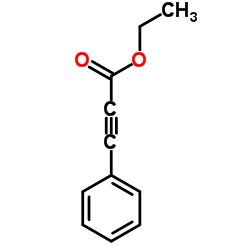Benzoyl peroxide activation of protein kinase C activity in epidermal cell membranes.
T E Donnelly, J C Pelling, C L Anderson, D Dalbey
Index: Carcinogenesis 8(12) , 1871-4, (1987)
Full Text: HTML
Abstract
We have investigated the effects of various tumor promoting agents on protein kinase C activity in adult female SENCAR mice. Topical application of benzoyl peroxide increased the calcium-independent activity of protein kinase C in the particulate fraction of basal epidermal cells while decreasing protein kinase C activity in the soluble fraction of basal epidermal cells isolated from the mice. Benzoyl peroxide apparently altered protein kinase C indirectly, as it had no direct effect on the activity of protein kinase C partially purified from bovine brain. Topical application of 12-O-tetradecanoyl phorbol-13-acetate to mouse skin resulted in increased protein kinase C activity associated with the particulate fraction of the epidermal cells with no change in the calcium-dependence of the enzyme. Since the proliferative agent ethylphenylpropiolate had no effect on protein kinase C in epidermis from SENCAR mice, the ability of benzoyl peroxide to influence protein kinase C activity in mouse skin may reflect its tumor promoting capabilities rather than its ability to induce hyperplasia.
Related Compounds
| Structure | Name/CAS No. | Molecular Formula | Articles |
|---|---|---|---|
 |
Ethyl 3-phenyl-2-propynoate
CAS:2216-94-6 |
C11H10O2 |
|
Overexpression of three ubiquitin genes in mouse epidermal t...
1992-05-01 [Cell Growth Differ. 3(5) , 269-78, (1992)] |
|
Changes in cytokeratins following treatment of hamster cheek...
1994-04-01 [J. Oral. Pathol. Med. 23(4) , 149-55, (1994)] |
|
Induction of ornithine decarboxylase in specific subpopulati...
1992-01-01 [Carcinogenesis 13(1) , 51-6, (1992)] |
|
Non-promoting hyperplasiogenic agents do not mimic the effec...
1984-05-01 [Carcinogenesis 5(5) , 687-90, (1984)] |
|
Comparative histomorphometric changes in SENCAR mouse epider...
1989-10-01 [Carcinogenesis 10(10) , 1855-61, (1989)] |